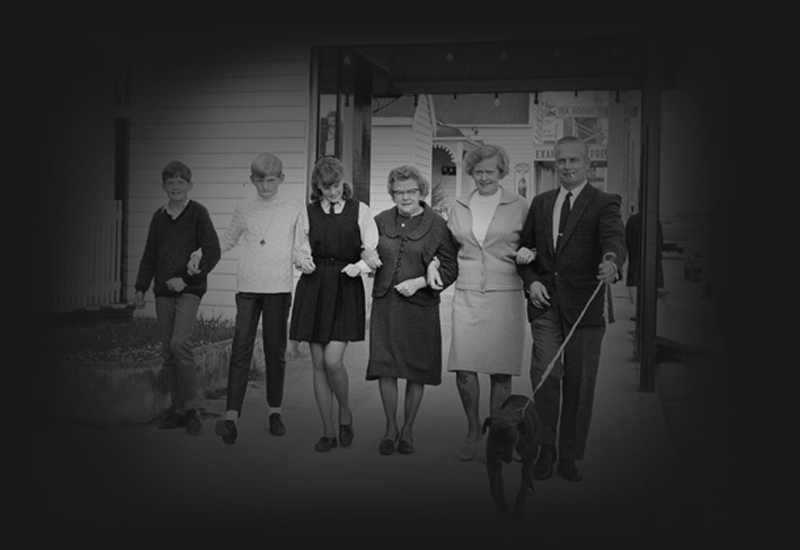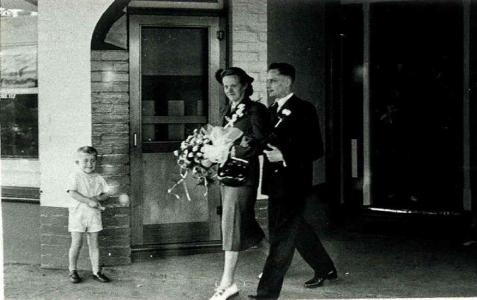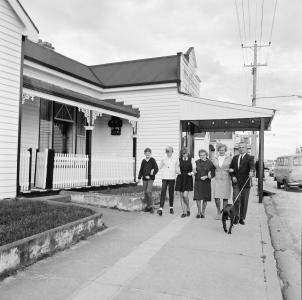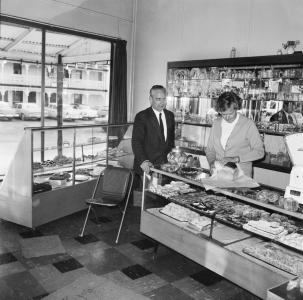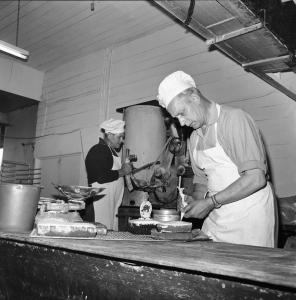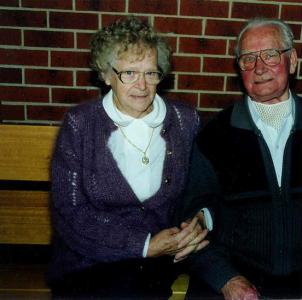When you’re not sure what to expect when you arrive, 17,000 kilometres is a long way to travel. In 1951 Nieske Besselink decided she would not marry her fiancé Jan Hoogenhout until she knew what awaited her on the other side of the world in Ulverstone, Tasmania – in case she didn’t like it and decided to return home to the Netherlands.
Nieske and Jan’s children, Eddie, John and Ineke, certainly feel relieved that Nieske didn’t change her mind. ‘They made the right decision to come here,’ says Eddie, their youngest son.
Part of the community
Jan and Nieske became well-known and liked locally when they opened their bakery in Sheffield, Tasmania. Jan made the best pastries in the area, and Nieske would remember all the children's names who came into the bakery. They made an effort to be part of the community and when hardship befell the family, they were embraced by the town.
In 1968, John developed bone cancer in his leg and had to have it amputated. It was a difficult time for the family but they felt supported. ‘Sheffield was a small town,’ Ineke, the eldest, says. ‘People felt really involved.’
John was one of the first Australians to undergo the surgery successfully and recovered with remarkable speed. In these circumstances the family was photographed outside their bakery in 1969. Eddie vividly remembers the government photographer taking it. John’s prosthetic leg was quite new. ‘We were all still getting used to John’s leg. We had to take several practice walks around the block to get it right for the photograph,’ Eddie said. ‘It swung out a lot,’ Ineke adds.
Other photographs show the family working in the bakery. It was important for the Australian government to show that migrants coming to Australia would find employment and prosperity. The Hoogenhout family had started a successful small business, and provided opportunities for other migrants, and was therefore considered to be a migration success story.
A family legacy
While Jan died in December 2010 and Nieske only 6 months later, their legacy in Tasmania remains. Despite initial reservations Nieske liked Australia so much she and Jan sponsored her mother Catharina in 1958, and more relatives later.
Known as ‘Moeke’, Catharina lived with the family in Sheffield until the 1970s. Eddie and Ineke remember relatives boarding for months at a time, as they searched for work and homes. ‘There was always a houseful of people,’ says Eddie. ‘We always had an uncle or a cousin or an aunt staying with us.’
While John now lives in Queensland, both Ineke and Eddie remain in Tasmania. Their parents instilled a sense of pride about their heritage, as well as an appreciation of the difficulties faced as new migrants.
Quotes from interview with Ineke Laning and Eddie Hoogenhout, January 2012.

